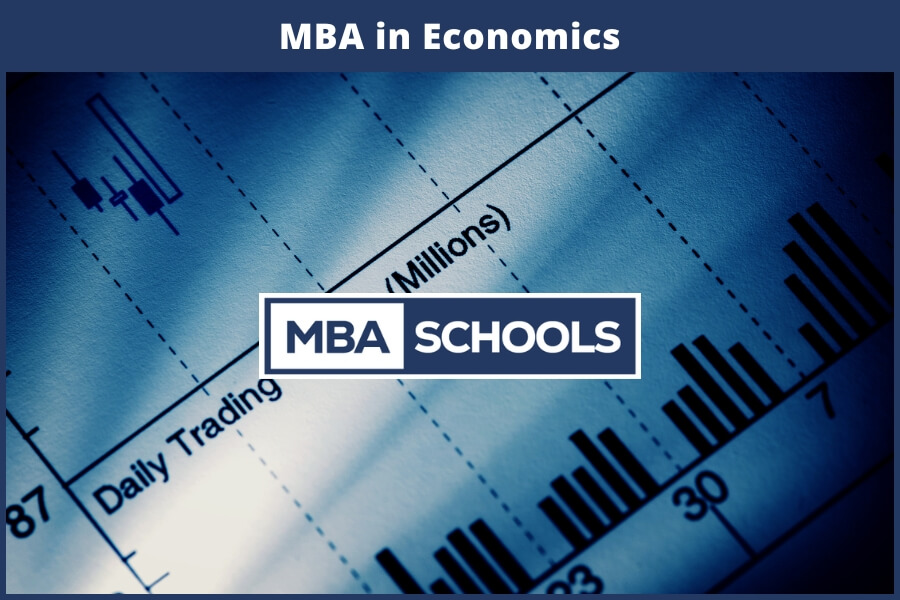MBA in Economics
An MBA in Economics is designed for professionals looking to analyze market trends, drive economic policy, and make data-driven business decisions. This specialization focuses on macroeconomics, microeconomics, economic modeling, and policy analysis, equipping graduates with the expertise to manage economic risk, optimize business strategies, and advise on financial regulations.
According to the U.S. Bureau of Labor Statistics (BLS), economists earn a median salary of $113,940 annually, with top professionals in financial services and government policy roles earning over $200,000 ( BLS). Additionally, McKinsey & Company reports that businesses leveraging economic analysis and forecasting see up to a 20% improvement in strategic decision-making accuracy, highlighting the importance of this specialization ( McKinsey).
An MBA in Economics specialization is ideal for professionals applying economic principles to corporate strategy, policy development, and financial analysis.

Table of Contents
What is an Online MBA in Economics?
An Online MBA in Economics provides a flexible pathway for professionals looking to develop expertise in economic forecasting, business analytics, and public policy while continuing their careers. These programs focus on data interpretation, market analysis, and financial impact assessment, helping students prepare for corporate finance, consulting, and government policy advisory leadership roles.
Students gain expertise in quantitative modeling, international trade, and economic risk assessment, ensuring they can analyze financial markets and guide business strategies based on economic trends. Many online programs include real-world economic simulations, policy impact case studies, and macroeconomic forecasting projects, providing an immersive learning experience.
What Are the Admissions Requirements for an MBA in Economics?
Admissions requirements for an MBA in Economics vary by program but typically include:
- Bachelor’s Degree – From an accredited institution, often in business, economics, finance, or a related field.
- Work Experience – 2-5 years of professional experience in finance, policy analysis, or economic consulting is preferred.
- GMAT/GRE Scores – Some programs require standardized test scores, while others offer waivers.
- Personal Statement – Discussing career goals and why the applicant is pursuing an MBA in Economics.
- Letters of Recommendation – Typically from employers, economists, or academic mentors.
- Resume – Highlighting experience in economic analysis, financial markets, or policy development.
Is an MBA in Economics the Right Specialization for You?
An MBA in Economics specialization is best suited for professionals who are analytical, data-driven, and interested in economic trends. If you are passionate about macroeconomic policies, financial forecasting, and market strategy, this specialization will provide the necessary skills for career advancement.
Compared to other MBA specializations, such as Finance or Business Analytics, an MBA in Economics focuses on market structures, government policy impacts, and economic risk factors. If you want to develop data-backed strategies for corporations, government agencies, or consulting firms, this program may be the best fit for you.
MBA in Economics Curriculum: What Classes Will I Take?
Most MBA in Economics programs take 1-2 years to complete, depending on whether students enroll full-time, part-time, or in an accelerated format.
Core Courses in an MBA in Economics
The curriculum for an Economics MBA specialization blends economic theory with business strategy expertise through courses such as:
- Microeconomic & Macroeconomic Analysis
- Economic Forecasting & Data Analytics
- Global Trade & International Economics
- Financial Economics & Market Behavior
- Behavioral Economics & Consumer Decision-Making
- Government Policy & Economic Regulation
- Risk Management & Economic Uncertainty
- Strategic Pricing & Competitive Market Analysis
Many programs also incorporate economic consulting projects, including real-world case studies in financial market analysis, policy recommendations, and business cycle forecasting. Some students complete internships with government agencies, multinational corporations, or economic research firms to gain hands-on experience before graduation.
What Career Options Do I Have with an MBA in Economics?
An MBA in Economics specialization prepares graduates for leadership roles in corporate strategy, government policy, and financial consulting. Common job titles include:
- Economic Consultant – Provides market analysis and policy recommendations for businesses and governments.
- Financial Analyst – Evaluates economic trends to inform investment decisions and corporate strategy.
- Policy Analyst – Assesses government policies and their economic impact on industries and businesses.
- Corporate Strategy Manager – Develops economic models to guide business growth and expansion.
- Market Research Analyst – Uses economic data to assess market trends and consumer behavior.
Salary Expectations
Salaries for MBA in Economics graduates vary based on industry, experience, and expertise. According to BLS and McKinsey, economics professionals with an MBA typically earn:
- Economic Consultant – $110,000 – $200,000
- Financial Analyst – $100,000 – $180,000
- Policy Analyst – $95,000 – $170,000
- Corporate Strategy Manager – $120,000 – $250,000
- Market Research Analyst – $90,000 – $160,000
Take the Next Step Toward a Leadership Role in Economics
An MBA in Economics provides the expertise to analyze market conditions, guide policy decisions, and develop strategic financial insights. Whether you want to work in government, finance, or economic consulting, this degree will give you the knowledge, skills, and network to achieve your career goals.
Explore top-ranked MBA in Economics programs today and start advancing your career.
Sources
- U.S. Bureau of Labor Statistics. (2023). Occupational Outlook Handbook: Economists & Market Analysts. Retrieved from https://www.bls.gov/
- McKinsey & Company. (2023). Economic Forecasting & Market Strategy Insights. Retrieved from https://www.mckinsey.com/